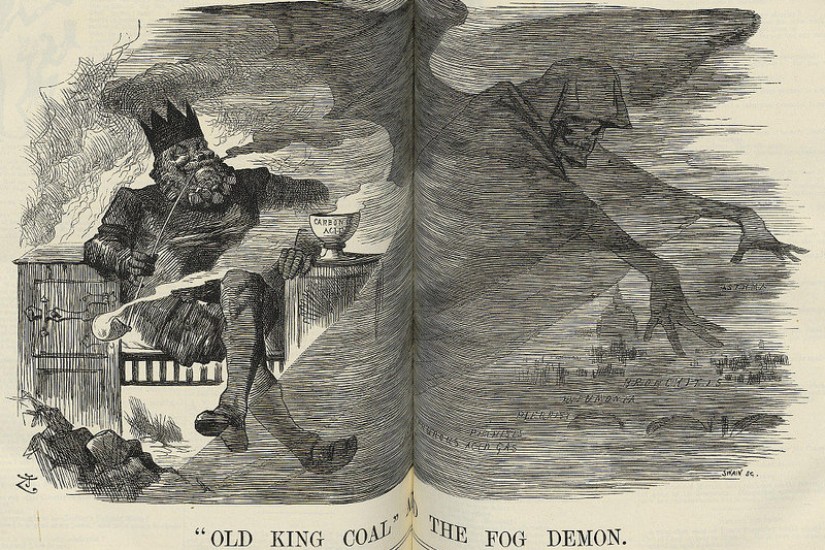This is the way the world ends: not with a bang but a bronchial spasm. That is, at least, according to William Delisle Hay’s 1880 novella, The Doom of the Great City. It imagines the entire population of London choked to death under a soot-filled fog. The story is told by the event’s lone survivor sixty years later as he recalls “the greatest calamity that perhaps this earth has ever witnessed” at what was, for Hay’s first readers, the distant future date of 1942.
The novella received only mild acclaim among its late Victorian readers, and today it is almost forgotten. But, surprisingly enough, it has become possible to read our social and environmental problems foretold in Hay’s strange little story. In our age of global warming, acid rain, and atmospheric pollution, we may become the first readers to take Hay seriously. When Hay imagines a city whose wealth and “false social system” lulls it into complacency, we can recognize ourselves in his words. And as for those air problems that loomed dangerously around them, Londoners “looked upon them in the light of a regular institution, not caring to investigate their cause with a view to some means of mitigating them”. At moments like these, we get the feeling that Hay’s obscure 135-year-old story is eerily prophetic.
But before we canonize Hay as an environmentalist and his story as An Inconvenient Truth in Victorian garb, we have to look at the story’s other features. Readers of The Doom of the Great City unfailingly notice that the story does not fit easily with other science fiction narratives, but seems to belong also to another class of tales, which Brian Stableford has called “ringing accounts of richly deserved punishment”. This is because Hay’s narrator seems to slide back and forth between material and moral explanations for pollution. While he talks of how “In those latter days there had been past years of terribly bad weather, destroying harvests”, he adds in the same paragraph, “prostitution flourished rampantly, while Chastity laid down her head and died! Evil! — one seemed to see it everywhere!”
